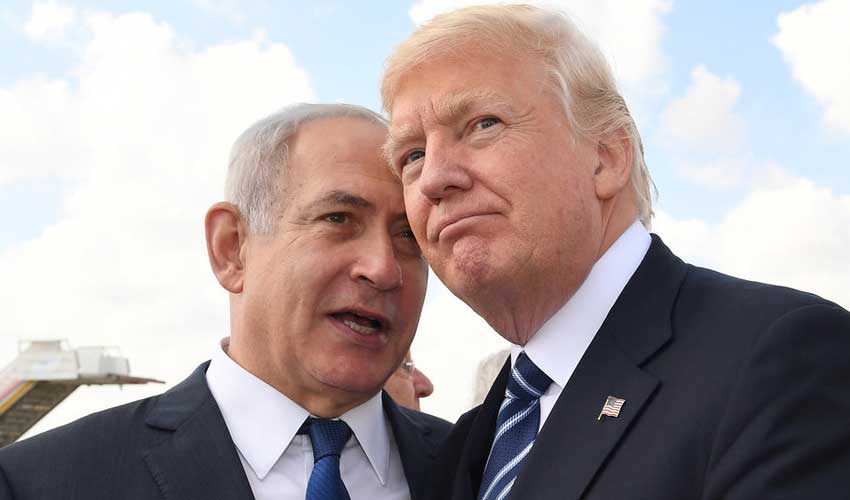US President Donald Trump has signalled a significant shift in tone urging Israel to escalate its military campaign in Gaza just weeks after suggesting a ceasefire agreement with Hamas was within reach.
Speaking to reporters before departing for a weekend trip to Scotland, Trump said it was time for Israel to “finish the job” against Hamas, citing what he described as the group’s unwillingness to engage in good-faith negotiations.
“I think they want to die, and it’s very, very bad,” Trump remarked when asked about the stalled ceasefire talks. “You’re gonna have to finish the job.”
The statement came amid growing international concern over the worsening humanitarian crisis in Gaza, where UN officials have warned of widespread starvation and described the civilian population as “walking corpses.” Despite these warnings, Trump’s comments appeared to lend support to Israel’s continued military offensive, now in its 21st month.
His remarks followed a decision earlier this week by Trump’s Middle East envoy, Steve Witkoff, to withdraw from US-mediated ceasefire negotiations in Doha.
The US has cited concerns over Hamas’ lack of coordination and sincerity in the talks. “We are now exploring alternative options for securing the release of hostages,” Witkoff said.
The sudden shift in the US position has raised questions about the future of negotiations and sent ripples through diplomatic circles in Qatar and Egypt, the key mediators in the ongoing talks.
“This is an earthquake. We’re dealing with the aftershock,” said one source with direct knowledge of the negotiations in Doha.
However, officials from both Egypt and Qatar downplayed the suspension, calling it “normal in the context of these complex negotiations.” In a joint statement, the Egyptian Ministry of Foreign Affairs confirmed that efforts would continue to broker a lasting ceasefire in Gaza.
A senior Israeli official, speaking to CNN, echoed similar sentiments, insisting that the talks have “not at all” collapsed and that avenues for a renewed agreement remain open. “We hope Hamas will reconnect itself to reality so the remaining gaps can be bridged,” the official said.
Trump, however, blamed Hamas for the deadlock, suggesting that the group had lost bargaining leverage after dozens of hostages were either released or killed in custody. “They didn’t want to make a deal,” he said, adding that the final stages of negotiations had revealed Hamas’ true intentions.
The president’s tough stance also appears to reflect growing frustration with Israeli Prime Minister Benjamin Netanyahu. Trump described his recent conversations with Netanyahu as “sort of disappointing,” but refrained from elaborating.
“They’re gonna have to fight and they’re gonna have to clean it up,” Trump said, in apparent reference to Israel’s military strategy in Gaza. “You’re gonna have to get rid of ’em.”
The latest developments mark a significant departure from Trump’s earlier optimism. As recently as early July, the former president had predicted a deal could be reached within a week. But with negotiations now on hold and no clear timeline for resumption, that optimism has faded.
Still, some in the administration remain hopeful that the pressure campaign will yield results. State Department spokeswoman Tammy Bruce told CNN that Trump and Witkoff “have many tools” at their disposal and are “very smart, adept individuals who know the players.”
“I expect that we’ll have some success,” Bruce said, though she declined to offer any timeline for a breakthrough.
Meanwhile, Netanyahu on Friday confirmed that Israel was now reviewing “alternative” strategies to achieve its objectives: returning hostages and ending Hamas’ control over Gaza. The prime minister offered no further details but reaffirmed Israel’s commitment to its military campaign, despite global appeals for restraint.
The humanitarian toll continues to mount. With most of Gaza’s population displaced and infrastructure in ruins, aid agencies warn of a rapidly deteriorating situation. Calls for an immediate ceasefire have grown louder, even as political rhetoric in Washington and Tel Aviv signals otherwise.
Observers say it remains unclear whether Trump’s latest statements are a tactical maneuver to pressure Hamas back to the negotiating table or a signal that diplomacy has taken a back seat to military force.







